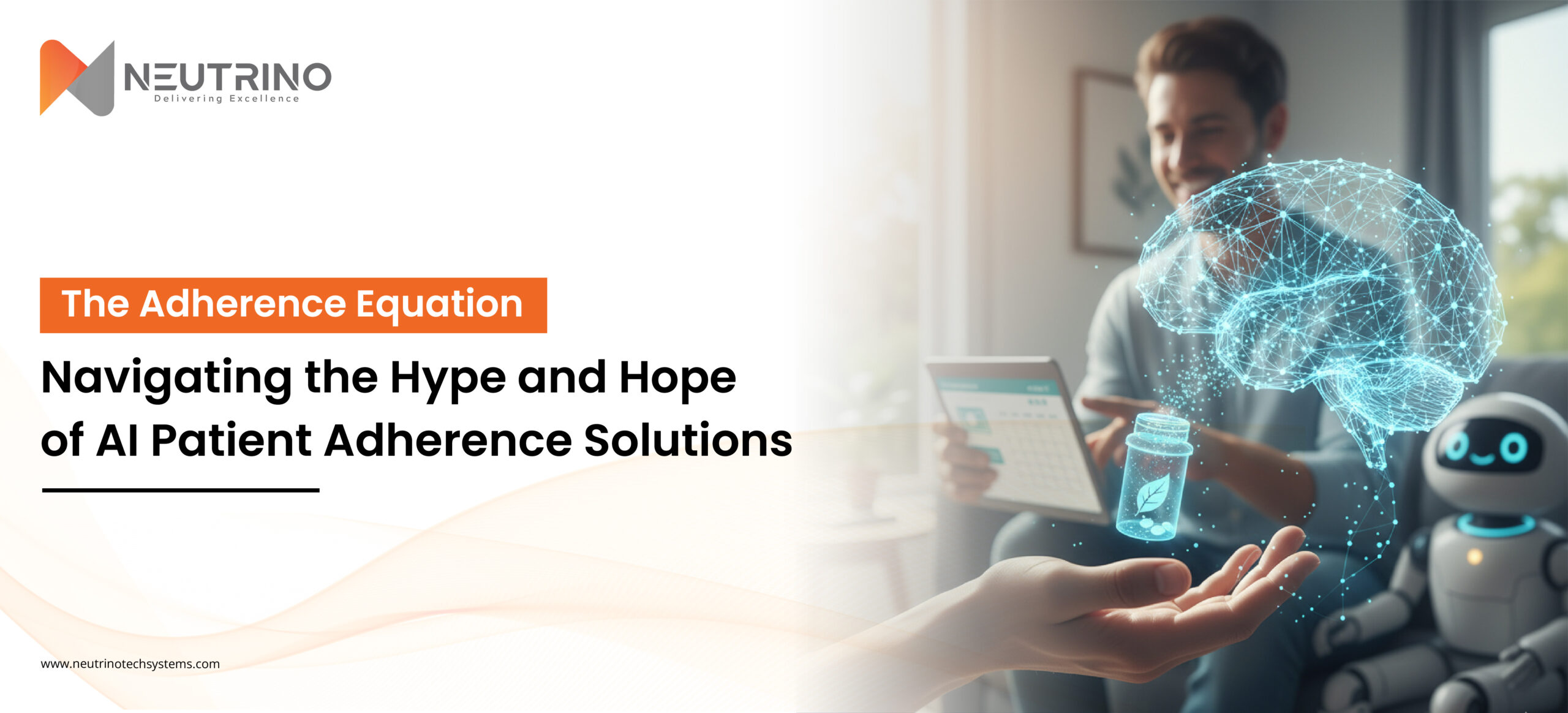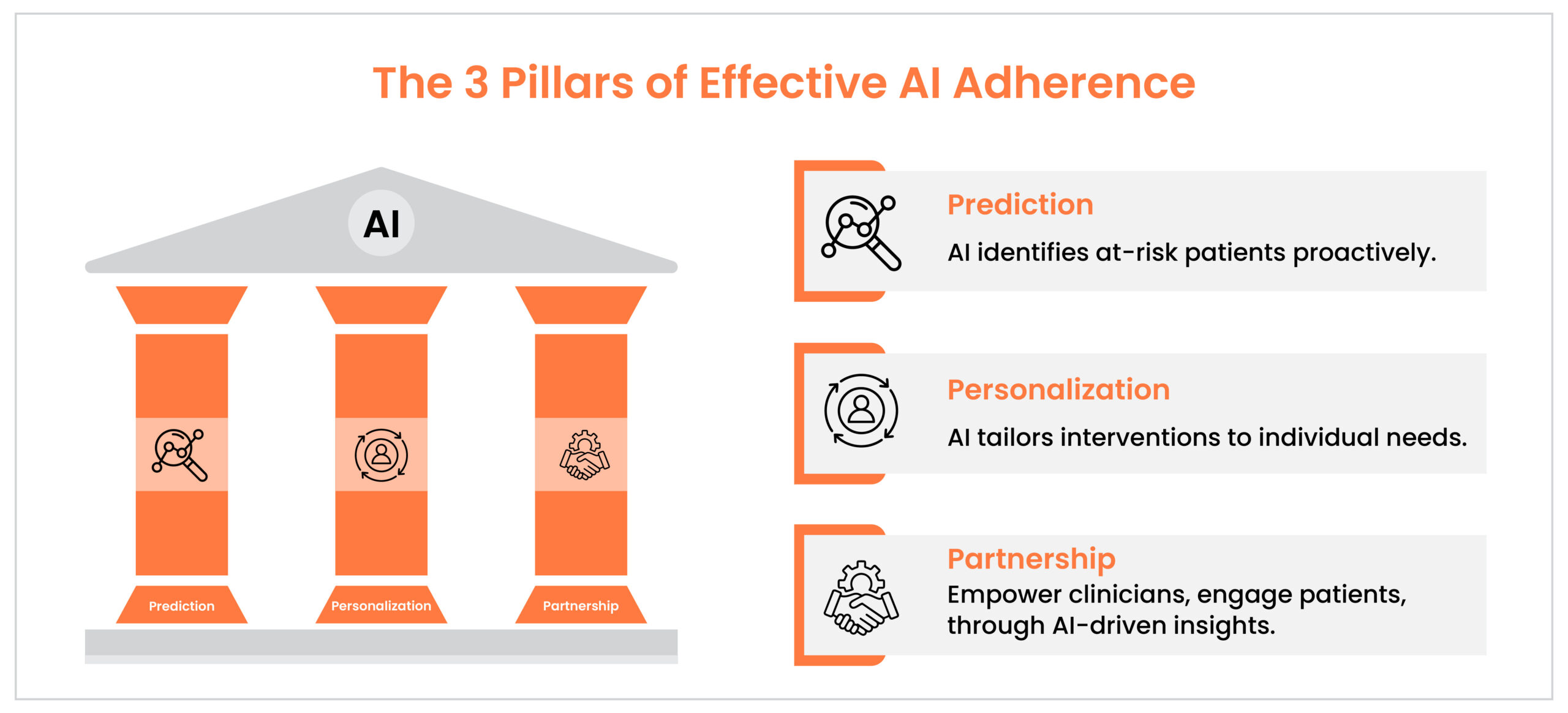The Adherence Equation: Navigating the Hype and Hope of AI Patient Adherence Solutions

The silent epidemic of non-adherence is estimated to cost the U.S. healthcare system alone nearly $300 billion annually and leading to countless preventable hospitalizations and worse health outcomes. The failure of traditional adherence methods is not a failure of effort, but a failure of insight. Treating non-adherence as a simple forgetfulness issue ignores the underlying behavioral, financial, and psychological factors. It is a massive, multi-faceted challenge that can only be solved by technology capable of analyzing billions of data points to understand the most complex variable in healthcare: the individual patient. Now, a new contender has emerged, promising to disrupt this stagnation: Artificial Intelligence.. From predictive algorithms that identify at-risk patients to conversational AI patient adherence solutions integrated into mobile apps, the technology promises to finally crack the adherence code.
It offers the holy grail of care: personalized, timely intervention at scale. But as the headlines boom and investment floods the sector, a critical question demands an empathetic answer: Is this revolutionary wave of AI patient adherence solutions a genuine beacon of hope for patients and providers, or just the latest tech hype cycle destined for disillusionment? The answer, as we will explore, lies not in the brilliance of the algorithms, but in our commitment to their ethical and human-centric application.
The ‘Hope’: Unpacking the Potential of AI Patient Adherence Solutions
The core promise of AI patient adherence solutions lies in their ability to move beyond passive reminders to deliver genuinely personalized, predictive, and proactive care at scale. Traditional adherence programs fail because they are universally “one-size-fits-all,” a resource-intensive approach that cannot effectively address the complex, individualized reasons for non-adherence across our diverse patient populations.
AI, conversely, thrives on this complexity. By analyzing billions of integrated data points, from claims and EHR data to patient-reported outcomes, AI algorithms allow large organizations like ours to make two critical, strategic shifts:
- Predictive Risk Scoring: AI models move us beyond retrospective reporting. They proactively predict which specific patients are most likely to become non-adherent in the near future, enabling the precise allocation of our costly clinical resources (pharmacists, nurses) to the small, high-impact group where they can drive the greatest change.
- Dynamic Personalization: The system transforms generic outreach into precision intervention. Whether the issue is financial stress, forgetfulness, or side-effect concerns, sophisticated AI patient adherence solutions deliver the tailored intervention required. This capability is essential for managing chronic diseases efficiently and driving measurable improvements in organizational quality metrics.
This transition from reactivity to prediction and personalization holds the key to significantly improving patient outcomes, reducing preventable hospital admissions, and finally demonstrating a clear Return on Investment (ROI) for adherence efforts across the enterprise.

The ‘Hype’: Navigating Ethical and Implementation Friction
While the potential of AI patient adherence solutions is transformative, the reality is that adoption faces significant friction points that threaten to deflate the hype cycle. The first major hurdle is the data privacy and ethical wall. For a machine learning drug adherence model to function effectively, it requires access to highly sensitive patient data (medical records, pharmacy transactions, even location/activity data from wearables). Ensuring this data is anonymized, secured, and used ethically without introducing algorithmic bias against specific demographic groups is a massive regulatory and operational challenge.
Furthermore, the effectiveness of any machine learning drug adherence strategy is entirely dependent on its implementation. Will healthcare systems invest in the necessary infrastructure? Will clinicians trust the “black box” recommendations of an AI over their own clinical judgment? If the solutions are poorly integrated, they risk becoming just another abandoned app, turning personalized medicine into little more than personalized digital noise. The successful transition from a promising algorithm to a widespread, trusted healthcare tool is the ultimate test for this technology.
The Path to True Adherence: Proactive Orchestration
Moving past the tension between the ‘hope’ of AI’s potential and the ‘hype’ of its implementation challenges requires a unified approach that embraces Proactive Orchestration. A truly personalized patient journey is one where the system adapts to the individual, rather than forcing the individual to adapt to the system.
This journey is characterized by four non-negotiable technological elements:
- Predictive Modeling that forecasts non-adherence risk with high precision;
- Dynamic Intervention Triaging that selects the right intervention (e.g., text, call, affordability check) based on the predicted barrier, not just the missed dose;
- Multimodal Communication that engages patients through their preferred, accessible channels; and
- A Closed-Loop Feedback mechanism where every patient action refines the next intervention.
Only by deploying such an integrated AI platform can healthcare organizations expedite the journey from data insight to tangible health outcomes, transforming complexity into the simplicity of sustained adherence. This is the standard of excellence that is now required of all strong AI patient adherence solutions.
Wrapping Up
Successfully navigating the divide between the “hope” and the “hype” surrounding AI patient adherence solutions requires a commitment to Proactive Orchestration, the standard of personalized, predictive, and closed-loop patient journeys. This is precisely where Neutrino Tech Systems differentiates itself in the HealthTech space. As a dedicated IT partner, we leverage cutting-edge AI and machine learning to provide the integrated platform necessary to fulfill this standard.
Neutrino provides the operational intelligence required for advanced predictive risk scoring and intelligent workflow triaging, ensuring the complexity of the code translates directly into the simplicity of sustained adherence for the patient. The success of this digital revolution will be measured not by the speed of the algorithm, but by the tangible improvement in patient health outcomes our AI patient adherence solutions deliver to your organization.
